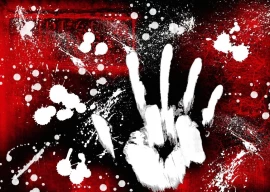
Pakistan and the United States are at the lowest point of their relationship since 9/11, but they still need each other and will continue to remain allies, said former US ambassador Dennis Kux at a seminar at the Pakistan Study Centre on Monday.
“Pakistan-US relations are like a bad marriage where divorce is impossible and the couple is likely to continue to rock along,” said Kux, who was keynote speaker at the seminar, titled Recent Irritants in Pak-US Relations.
He said that after the killing of Osama Bin Laden in Abbottabad and the Raymond Davis affair, the US and Pakistan had developed a trust deficit. Islamabad had reduced military and intelligence cooperation and also demanded an end to drone attacks. The US administration had suspended the disbursement of $800 million in military aid. Former US defence secretary Robert Gates described the relationship as a bad marriage, he said.
However, he said, the two countries are not heading towards a ‘divorce’ because they need each other. Therefore these relations with ups and downs are likely to continue in future, he said.
Kux said that members of Congress had accused Pakistan of pursuing two-faced policies towards terrorist groups. “Washington considers the Afghan Taliban, the Haqqani Network and the militants led by [Gulbuddin] Hekmatyar as terrorists. Pakistan, on the other hand, considers these groups as useful proxies to protect itself after the US/NATO forces leave Afghanistan for good,” he said.
Kux, who served as US ambassador to Pakistan from 1957 to 1959 and 1969 to 1971, gave a detailed review of the “rollercoaster” US-Pakistan ties since 1954. The Eisenhower administration and Gen Ayub Khan cooperated with each other and Pakistan became America’s ‘Most Allied Ally in Asia’. But when military aid was given to India in 1962, after the India-China war, Pakistan was infuriated. Pakistan’s friendship with China and criticism of the US role in Vietnam angered Washington. In 1965, President Lyndon Johnson cut off military and economic aid to Pakistan due to its war with India, ending the US-Pakistan alliance altogether. When Richard Nixon came to the White House, US-Pakistan relations were once again revived and Pakistan-China friendship became a positive point for the US, he said.
He said that Pakistan facilitated the emergence of friendly relations between the US and China. During the Gerald Ford administration, good relations continued. Jimmy Carter’s focus on nuclear nonproliferation, democracy and human right issues turned things sour once again.
“In 1979, the attack on the US embassy in Islamabad and the slow response of Pakistan’s law-enforcement agencies during the incident, resulting in the death of 4 US embassy employees, further deteriorated the relations between US and Pakistan. But the Soviet invasion of Afghanistan once again revived this relationship and made Pakistan a front line state,” he said.
President Ronald Reagan and Gen Ziaul Haq developed very friendly relations fighting against the Soviet Union and the US deliberately ignored the development of Pakistan’s nuclear weapons, Kux said. Certification was given by the US president that Pakistan was not developing a nuclear bomb.
But after the destruction of the Soviet Union, Pakistan’s nuclear programme became the critical issue between the two countries and US intelligence agencies confirmed that Pakistan possessed a nuclear weapon. The nuclear issue and the ISI role in supporting Islamic radicals affected the relationship during the close of the 20th century, he said.
Under George Bush Sr and Bill Clinton, the US was deeply worried at Pakistan’s support for the insurgency in Kashmir and close relations with the Taliban regime in Kabul. The Clinton administration was angered by the Kargil operation and when the Nawaz Sharif government was thrown out by Gen Pervez Musharraf in 1999.
“The tragic events of 9/11 once again made Pakistan a key player in US involvement in Afghanistan,” he said. “Musharraf became the number one ally in the US war against terror. Both countries benefited from this Bush-Musharraf alliance: Pakistan benefited militarily and economically and the US benefited from Islamabad’s help in killing and capturing Al Qaeda elements.”
Pakistan became an indispensable US ally and Musharraf was supported by the US despite the fact that the main political parties in Pakistan protested against the US attitude, he added.
In 2009, when George W Bush left the White House, Pakistan’s political scene had completely changed, he said. Although a great deal of military and economic aid had been given to Pakistan, the differences between the two countries began to multiply.
The Raymond Davis affair and the Abbottabad operation created a great deal of mistrust between the two countries, he said. The US administration, Congress and the US media harshly criticised the ISI role in supporting the Haqqani network in Afghanistan. “Relations between the US and Pakistan have spiralled downward to their lowest point since 9/11,” Kux said, but added that despite the ups and downs the relations between the two countries would continue. The seminar was organised by the Punjab University’s Pakistan Study Centre in collaboration with the Department of History.
PSC Director Prof Musarrat Abid and Prof Dr Farooq Hasnat also spoke on the occasion.
Published in The Express Tribune, November 15th, 2011.






































COMMENTS
Comments are moderated and generally will be posted if they are on-topic and not abusive.
For more information, please see our Comments FAQ